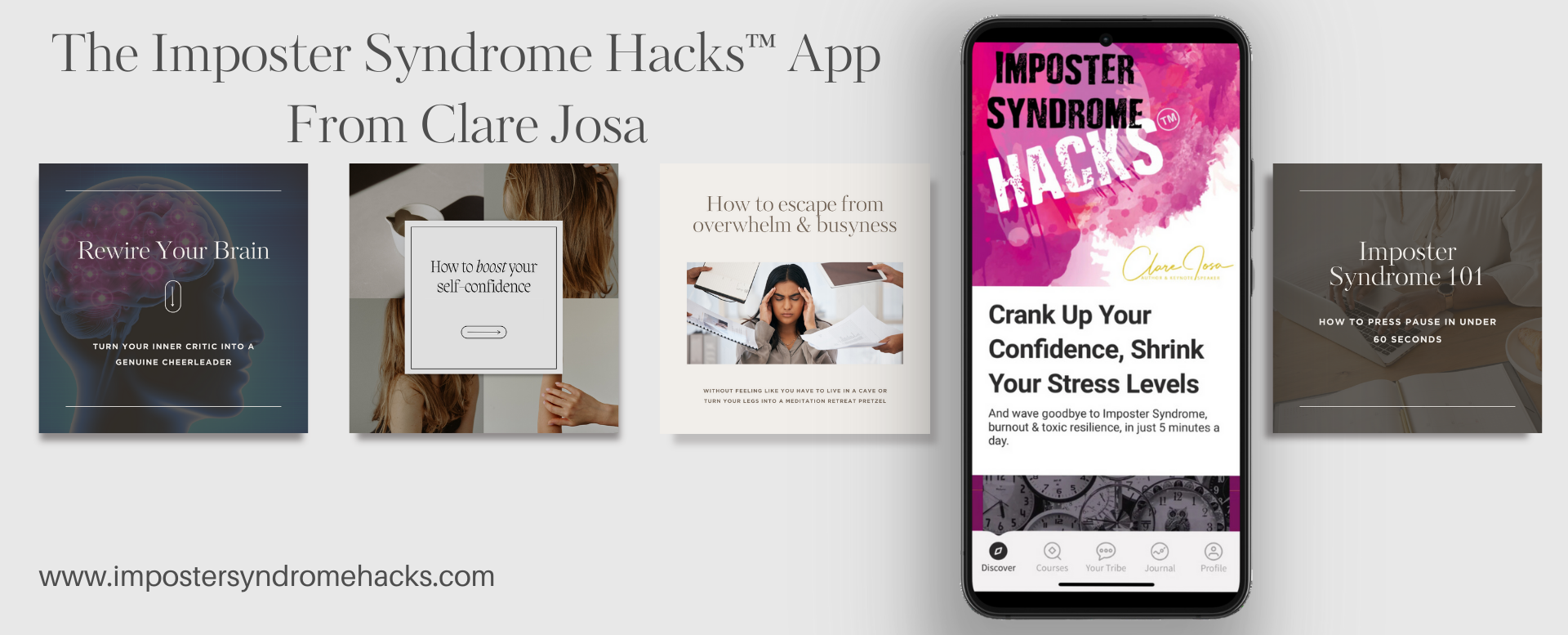Imposter Syndrome is more than just ‘self-doubt in a spiky suit’. The landmark 2019 Imposter Syndrome Research Study shows that the phenomenon could be costing British businesses billions, yet hardly any of them have processes in place to identify employees who are struggling with it – or training to support them.
Here are five key findings from the research that every business needs to know.
1. It affects both men and women – with clear gender differences in its effects.
Contrary to the urban myth, Imposter Syndrome doesn’t just affect women – the research found that both men and women are affected at similar rates, though they handle it differently.
Women are more likely to find it affecting the actions they take in their career – holding back from promotions or setting up their own business.
Men are more likely to ignore it and ‘push on through’, which can lead to stress, anxiety and depression – as well as a culture of fear and bullying at the most senior levels.
2. No business is immune – from solopreneurs to FTSE-100 companies.
Incidence rates were similar for all business sizes, except for start-ups, where it was lower, but still a problem. Some industries were more prone than others, with service-based businesses struggling more than, say, manufacturing.
Across the board, 49% of male respondents and 52% of female respondents said they struggle with Imposter Syndrome ‘daily’ or ‘regularly’ and that it affects the actions they take at work, often spilling over into their home life.
The research shows that CEOs who claim they don’t have anyone with Imposter Syndrome in their company might need to think again.
3. Imposter Syndrome is a driving factor in star performers leaving a company and stalled personal development.
It’s the ‘last taboo’ of the personal development world.
People’s natural tendency is to hide the fact that they are struggling with Imposter Syndrome – thinking they are the only person with it – causing performance issues, self-sabotage, and mental health concerns. It lurks in the background long after someone has sorted their general confidence. The behaviours it triggers stall personal and professional development.
And it causes star performers to leave an employer they might love, because they want to find a job where Imposter Syndrome doesn’t affect them as much. Women also tended to apply externally for leadership roles, because they didn’t want to risk public failure through an internal promotion application.
4. Imposter Syndrome damages an individual’s performance, team dynamics, productivity and profit.
The research showed that Imposter Syndrome has a major impact on people’s individual and team performance, team dynamics, productivity and profit.
A former superstar employee can turn into a micro-managing bully-boss when Imposter Syndrome strikes, unwittingly creating a toxic working environment for their team.
The neurological and psychological effects of stress from Imposter Syndrome damage creativity, productivity and working relationships.
5. Imposter Syndrome is one of three core drivers in the gender pay gap.
It plays a key role in the gender pay gap and gender-related glass ceilings / lack of equality in leadership roles, even in firms with proactive policies to address this.
Imposter Syndrome affects women differently to men. With women, it tends to make them less likely to take opportunities to shine or to apply for promotions and pay rises they know they deserve. They are more likely to deflect praise and, instead, point out their faults. They are less likely than men to ‘own’ their individual role in the success of the group they were leading.
And quotas can make it worse: for women, Imposter Syndrome incidence and severity increases with seniority. For men, the opposite is the case.
To fix the gender pay gap, we must first address Imposter Syndrome.
These are just the beginning of the findings from the 2019 Imposter Syndrome Research Study. The main white paper takes you through:
- How Imposter Syndrome is likely to be affecting your bottom line
- What Imposter Syndrome is – and isn’t
- Gender differences and warning signs
- How you can spot if an employee has it, before it damages their performance or their team
- Three key factors in the gender pay gap
- Solutions for Imposter Syndrome: the bad and the good
- How to find out exactly how Imposter Syndrome is affecting your organisation
You Can Get Your Copy Of The Research White Paper Here:
www.ditchingimpostersyndrome.com/research/
And if you want to find out exactly how Imposter Syndrome is affecting your company – or to book me to run a workshop on the topic (or work with someone 1:1), get in touch and we can set up a call. There are three core things a business needs to do to start to turn around the damage Imposter Syndrome causes – and all of them can be started today.
Clare Josa is considered the UK’s leading authority on Imposter Syndrome, having spent the past fifteen years working with business leaders to help them to overcome it, as well as leading the landmark 2019 Imposter Syndrome Research Study and publishing her new book: Ditching Imposter Syndrome.
A recognised expert in the neuroscience and psychology of performance, as well as training design, her original career as an engineer means her inspirational approach is grounded in practical common sense, creating breakthroughs not burnout.
She is the author of eight books and has been interviewed by the likes of The Independent, The Daily Telegraph and Radio 4, amongst many others. Clare speaks internationally on how to change the world by changing yourself.
To find out more about working with Clare, contact her team to schedule a call.

